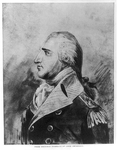Posted on March
16, 2015
Warped Powers Act
Does Obama need Congress or not?
by
Daniel
Clark
Members of the “how dare you question our patriotism”
party are calling Arkansas Senator Tom Cotton and his 46 Republican colleagues
traitors for their open letter to Iran, in which they explain that any treaty
signed by the president must be ratified by Congress. At the very least, the Democrats charge that
the letter violates the Logan Act of 1799, which reads in part, “Any citizen of
the United States … who, without authority of the United States, directly or
indirectly commences or carries on any correspondence or intercourse with any
foreign government … shall be fined under this title or imprisoned not more
than three years, or both.”
 These
“living Constitution” theorists now tout the 216-year-old law, without
allowing that it might have “evolved” over the years. They never think it literally applies to
genuinely treasonous acts by Democrats, however. Not the “Dear Comandante”
letter that congressional Dems wrote to Daniel Ortega, in an effort to undercut
President Reagan’s support for the Contras.
Not Ted Kennedy’s secret offer to tutor Soviet Premier Yuri Andropov in
waging a P.R. campaign against Reagan’s foreign policy. Not Jimmy Carter’s letter to the UN Security
Council, trying to dissuade that body from supporting Operation Desert Shield. Not the 2002 visit to prewar Iraq by Reps.
David Bonior, Jim McDermott and Mike Thompson, a trip that was financed by Saddam
Hussein, who knew he could trust them to propagandize on his behalf.
These
“living Constitution” theorists now tout the 216-year-old law, without
allowing that it might have “evolved” over the years. They never think it literally applies to
genuinely treasonous acts by Democrats, however. Not the “Dear Comandante”
letter that congressional Dems wrote to Daniel Ortega, in an effort to undercut
President Reagan’s support for the Contras.
Not Ted Kennedy’s secret offer to tutor Soviet Premier Yuri Andropov in
waging a P.R. campaign against Reagan’s foreign policy. Not Jimmy Carter’s letter to the UN Security
Council, trying to dissuade that body from supporting Operation Desert Shield. Not the 2002 visit to prewar Iraq by Reps.
David Bonior, Jim McDermott and Mike Thompson, a trip that was financed by Saddam
Hussein, who knew he could trust them to propagandize on his behalf.
No, they’ve only discovered the statute now that its
relevance is far more questionable. All the
Democrats cited above acted “without authority of the United States.” Conversely, the whole point of the letter
from those 47 GOP senators is to explain what their constitutional authority is
in relation to President Obama’s negotiations with Iran. Critics may dispute the propriety of this
action, but there’s no convincing basis to doubt its legality.
The Iranians say they don’t believe the Republicans,
which begs the question, what has Obama been telling them instead? One would think an American president –
especially one who claims to have been a constitutional law professor – would
want other heads of state to understand the limitations of his office while
he’s negotiating with them. Evidently,
he doesn’t.
The “flexibility” that Obama promised the Russians
he’d have after his reelection must include the presumption that he can create
a treaty without legislative approval.
Who needs Congress when he’s got his trusted Iranian-born advisor,
Valerie Jarrett? Who needs to debate an
agreement that’s been negotiated with the help of Secretary of State John
Kerry, who betrayed his fellow soldiers in Vietnam, and secretly met with the
Vietcong in Paris while the war was still going on? Who does a mere freshman senator think he is
to challenge “the ones we’ve been waiting for”?
 It’s
not unheard of for a president to sign an agreement with other world leaders
that is not meant to be ratified as a treaty, but Sen. Cotton is correct that
nobody is obligated to uphold such an agreement. For example, President Clinton agreed in the
Budapest Memorandum that the U.S. would defend the territorial integrity of
Ukraine. Do you see President Obama
defending the territorial integrity of Ukraine?
Well, then.
It’s
not unheard of for a president to sign an agreement with other world leaders
that is not meant to be ratified as a treaty, but Sen. Cotton is correct that
nobody is obligated to uphold such an agreement. For example, President Clinton agreed in the
Budapest Memorandum that the U.S. would defend the territorial integrity of
Ukraine. Do you see President Obama
defending the territorial integrity of Ukraine?
Well, then.
Whereas Obama spurns Congress regarding Iran, he
demands unnecessary congressional action where ISIS is concerned. The president already has all the authority
he needs to fight ISIS, as granted by the broadly written declaration of war
that was passed prior to the invasion of Afghanistan. The new declaration Obama wants would
actually place restrictions on his power, by ruling out the use of ground
forces, and putting a three-year limit on the offensive.
Such an authorization would be grossly
unconstitutional. Article I Section 8
empowers Congress “to declare War.” It
does not allow Congress to usurp the powers of the Commander-in-Chief by
drawing arbitrary parameters within which he must prosecute the war. If Obama wants to restrain his use of
military force, he is already within his authority to do so. Instead, he wants his political adversaries
to relieve him of that responsibility.
Obama denies Congress its rightful role in one
international action, but yields to it powers it shouldn’t have in
another. On the surface, this is a
contradiction, but instead of looking at the differences between the two
policies, let’s look at what’s the same.
In each case, he is curtailing America’s ability to protect itself and
the rest of the Free World from Islamist aggressors. Meanwhile, all who oppose him can expect to
be accused of treason.
The Shinbone: The
Frontier of the Free Press